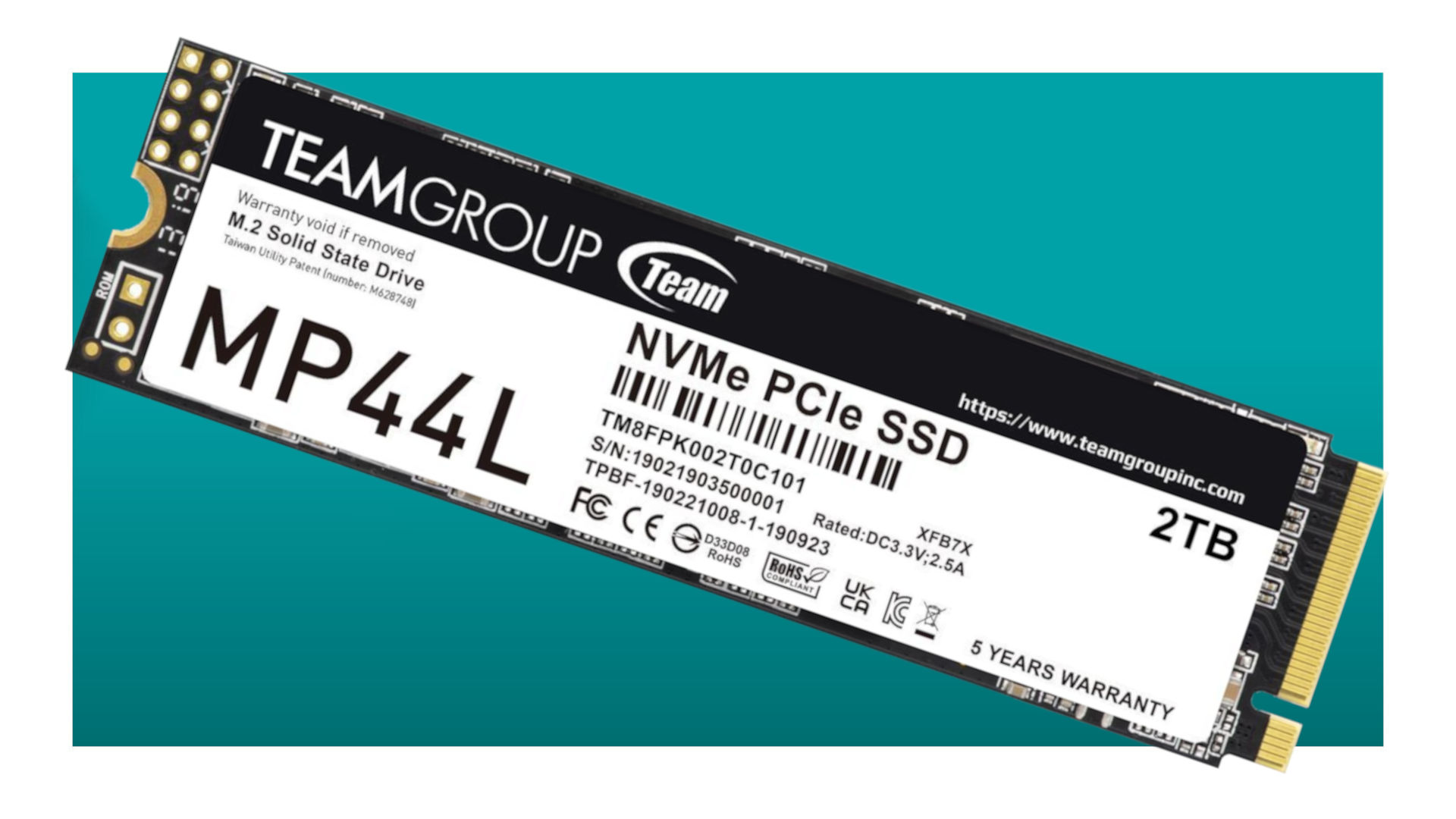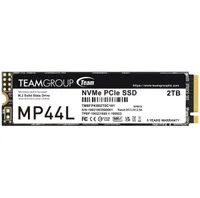At less than $0.05 per GB, this Prime Day SSD is the perfect way to bag NVMe speed for a HDD price
Who doesn't love a nice SSD bargain? Not me, that's for sure.

This particular Team Group SSD is now sold out, but the good news is the 1TB version of the same drive is still on sale for $58.99. There are also a few other 2TB NVMe drives on sale for around the same price as the Team Group model. This Silicon Power 2TB drive ($98.99) is actually selling for a dollar less than the Team Group, and the Crucial P3 Plus 2TB drive is going for $104.99 as well.
Team Group MP44L | 2 TB | NVMe | PCIe 4.0 | 4,800 MB/s read | 4,400 MB/s write | $122.99 $99.99 at Amazon (save $23)
It's far from being the fastest 2 TB SSD you can buy but it's certainly one of the cheapest. Every gigabyte of storage inside will cost you less than five cents. What a world we live in.
Price check: Newegg $99.99
When it comes to the world of SSDs, the ones that grab all the headlines tend to be the fastest or largest ones. This deal from Team Group is neither of those things but it's still a great deal, for one simple reason.
At a cent under $100 for 2 TB of NVMe storage, you're paying less than five cents for every gigabyte. I know it might seem like I'm laboring the point but that's a super low price for a solid state drive, especially one this size.
- We're curating all the best Prime Day PC gaming deals right here.
And it's not like there's el-cheapo hardware being used here, either. The NAND flash chips are TLC ones from Micron and the controller is an E21T model from Phison, so while it's not setting any speed records, you're pretty much guaranteed reliability and longevity.
There's no DRAM to boost performance but the important table that stores all the data locations on the drive is kept in the PC's system memory (called a Host Memory Buffer), helping to make sure that the drive's performance is consistent at all times.
And speaking of performance, while its peak read/write speeds of 4,800 and 4,400 MB/s are nothing to shout about, they're more than good enough for most scenarios—certainly for gaming, at the very least. Unless you're heavily into AI processing or high-resolution video editing, you're not going to miss out.
Perhaps the only thing that goes against the MP44L is the size of its SLC cache. To improve how quickly SSDs can write small bursts of data, most of them have a small amount of the NAND flash working in SLC (single-level cell) mode. This is the fastest mode of operation but also provides the least amount of storage.
The MP44L's SLC cache is a lot smaller than the best gaming SSDs (somewhere around 70 GB) and once this is full, then the write performance will drop by at least 50%. You'll notice this most when trying to install a very large game, where the last third of the installation will take much longer than the first stages.
In my opinion, that's a small price to pay for a spacious, cheap, and cool-running SSD. Sure, we'd all love our gaming PCs to be festooned with blazing-fast drives, but most of the time the extra speed is somewhat wasted. Here you're not paying for anything you're rarely going to use.
Keep up to date with the most important stories and the best deals, as picked by the PC Gamer team.

Nick, gaming, and computers all first met in the early 1980s. After leaving university, he became a physics and IT teacher and started writing about tech in the late 1990s. That resulted in him working with MadOnion to write the help files for 3DMark and PCMark. After a short stint working at Beyond3D.com, Nick joined Futuremark (MadOnion rebranded) full-time, as editor-in-chief for its PC gaming section, YouGamers. After the site shutdown, he became an engineering and computing lecturer for many years, but missed the writing bug. Cue four years at TechSpot.com covering everything and anything to do with tech and PCs. He freely admits to being far too obsessed with GPUs and open-world grindy RPGs, but who isn't these days?


